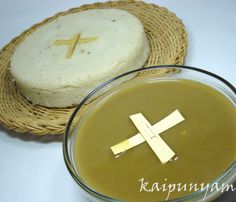Y
Yeoman
Guest
I know what the history and rules for we Latin Catholics is regarding no meat on Fridays, fast on Good Friday and today (Ash Wednesday), and the history of that.
But it occurs to me that I do not know what the rules are for those in Eastern Rites. I know they are different, however.
So can somebody tell me what they are? And do you have a year around Friday obligation of some kind? Or one on some other day, other than Sunday?
And do the same rules that bind the Eastern Rite here also bind the Orthodox, if anyone knows, or are they different?
But it occurs to me that I do not know what the rules are for those in Eastern Rites. I know they are different, however.
So can somebody tell me what they are? And do you have a year around Friday obligation of some kind? Or one on some other day, other than Sunday?
And do the same rules that bind the Eastern Rite here also bind the Orthodox, if anyone knows, or are they different?

